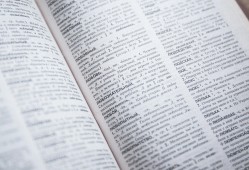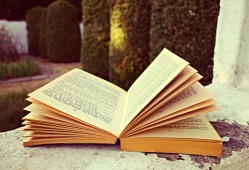The Benefits of Reading Encyclopedic Knowledge:An English Essay
- 生活百科
- 2025-08-29
- 24
In today's rapidly evolving world, the thirst for knowledge has never been more significant. One of the most effective ways to quench this thirst is by delving into the vast ocean of information that encyclopedias provide. This essay aims to explore the myriad benefits of reading encyclopedic knowledge and how it can enrich our lives in various ways.
First and foremost, reading encyclopedias enhances our general knowledge. Encyclopedias are comprehensive collections of information on a wide range of subjects, from history and science to art and culture. By reading them, we gain a broad understanding of the world around us. This knowledge is not only useful for academic purposes but also for engaging in informed conversations and making well-rounded decisions in our daily lives.
Secondly, encyclopedias foster critical thinking skills. Unlike passive consumption of information, reading an encyclopedia often requires us to actively engage with the material. We are encouraged to question, analyze, and synthesize the information we read. This process helps to develop our ability to think critically, which is a valuable skill in both our personal and professional lives.
Moreover, reading encyclopedias can spark curiosity and a love for learning. The wealth of information presented in an organized and accessible manner can pique our interest in various subjects. This curiosity can lead us to explore further, either through additional reading or hands-on experiences, thus fostering a lifelong love for learning.
Another benefit of reading encyclopedias is the development of research skills. As we navigate through the pages of an encyclopedia, we learn how to locate specific information, understand the context in which it is presented, and cross-reference facts with other sources. These skills are essential in today's information age, where the ability to discern credible sources and analyze information is crucial.
Reading encyclopedias also helps to improve our vocabulary and language skills. Exposure to a wide array of topics and the diverse language used to describe them can expand our vocabulary and enhance our communication abilities. This is particularly beneficial for students and professionals who need to communicate complex ideas effectively.
Furthermore, encyclopedias can serve as a bridge between different cultures and perspectives. By providing information on various cultures, histories, and viewpoints, encyclopedias can help us develop a more global understanding and appreciation for diversity. This can lead to greater empathy and tolerance, which are essential in our increasingly interconnected world.
In addition, reading encyclopedias can be a source of inspiration. Many encyclopedias include biographies of notable figures from various fields. Reading about their achievements and the challenges they overcame can inspire us to pursue our own dreams and ambitions.
Lastly, encyclopedias can be a valuable tool for personal development. As we learn about different subjects, we may discover new interests or passions that we were previously unaware of. This self-discovery can lead to personal growth and a more fulfilling life.
In conclusion, reading encyclopedic knowledge offers a multitude of benefits that extend beyond the mere acquisition of facts. It enriches our minds, enhances our critical thinking, sparks curiosity, develops research and language skills, promotes cultural understanding, inspires us, and aids in personal development. In a world where knowledge is power, investing time in reading encyclopedias is an investment in ourselves and our future. As we continue to explore the vast repository of information that encyclopedias provide, we open ourselves up to a world of possibilities and the potential to become more knowledgeable, well-rounded individuals.













